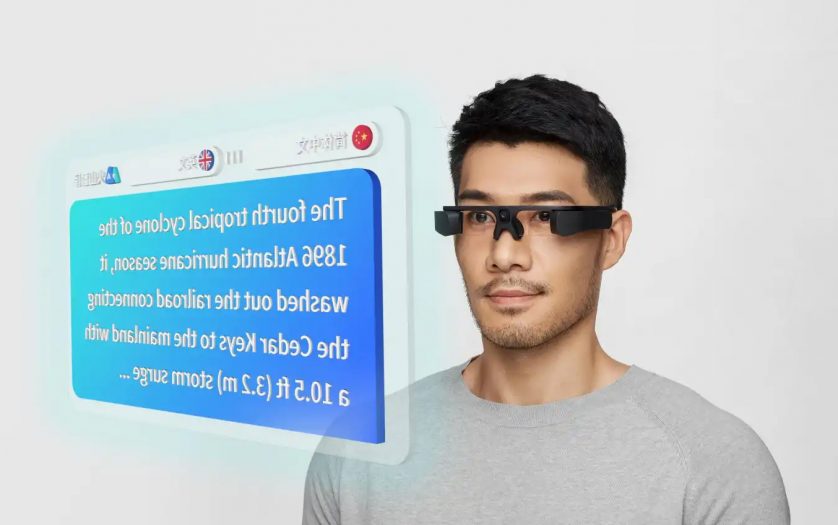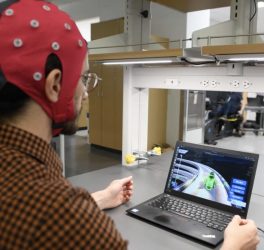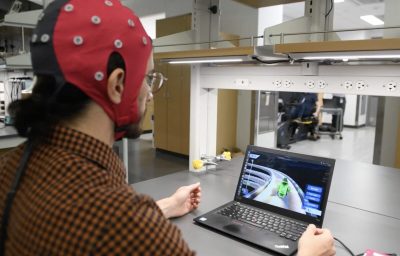
Chinese startup LLVision Technology has launched eyewear for people with hearing disabilities that converts speech into text, reported Nikkei Asia.
LLVision creates augmented reality (AR) optical and display modules. Its businesses include designing and manufacturing AR devices, developing AR-related software and algorithms, and software-as-a-service, or SaaS.
The company utilized data from its own surveys to create AR products for the hearing disabled community.
When communicating in-person, people with disabilities may rely on lip reading, which can sometimes result in misunderstandings.
LLVision aims to fix these issues using neurolinguistic programming — an important aspect of artificial intelligence (AI) — which allows almost instant speech recognition to enable accurate translation of text.
AI-imbued chips for edge processing, 5G and cloud services allow quicker communication between input and output. Also, the electrical components have become more lightweight, allowing people to wear AR glasses for longer periods of time.
LLVision has combined machine translation with AR glasses and voice recognition functions from VolcEngine — a big data and AI unit of Chinese tech company ByteDance — to create text platforms for people with hearing disabilities.
Text is displayed clearly with very little delay, even in conversations with numerous people from different distances and directions. The company says the eyewear technology is so advanced that it can even differentiate homonyms based on speech context.
By merging AR- and AI-related technologies, LLVision also provides SaaS. For instance, the company offers AR software customized for highly specialized aircraft maintenance as well as for general-purpose manufacturing.
Its SaaS permits engineers to perform several operations remotely, receiving separate operating instructions for each exercise.
In a project with China Southern Airlines, LLVision worked with ground staff to conduct aircraft maintenance, using its experience in smart annotation and machine learning to establish new platforms to increase maintenance efficiency by over 50%.
In 2019, Nikkei announced its partnership with 36Kr, a Chinese tech news portal founded in Beijing in 2010 that has more than 150 million readers worldwide.








